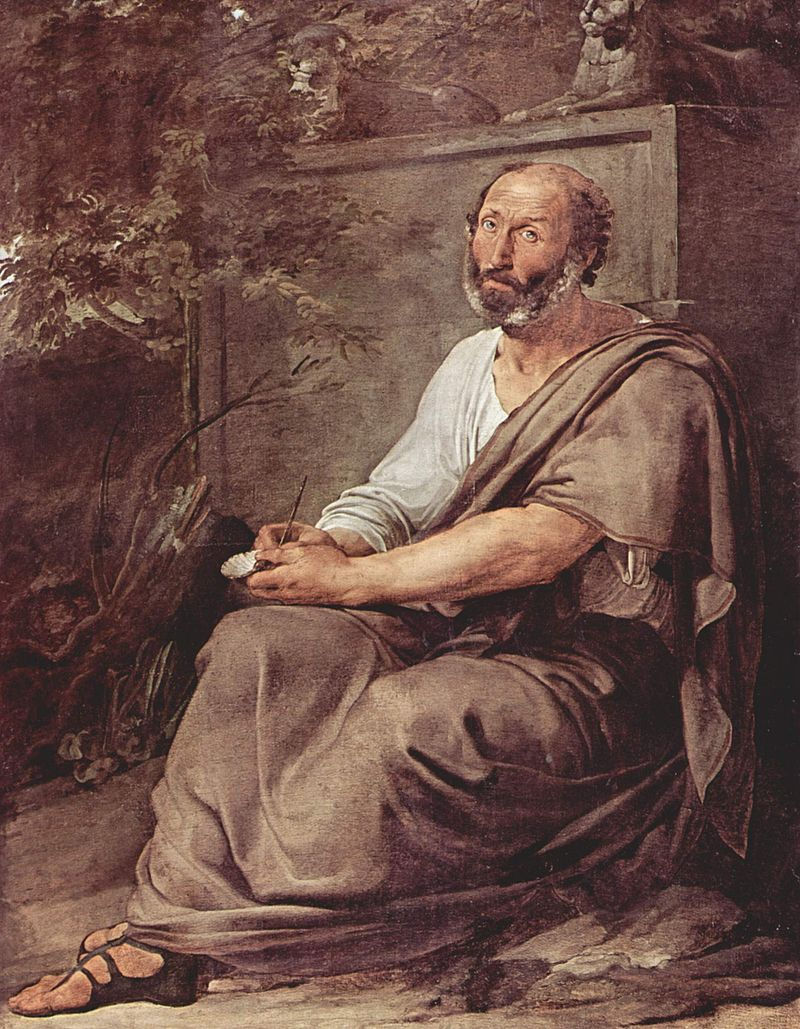Critical Art: Plato and Aristotle's Debate over Poetry
The benefits and effects of poetry have always been debated by scholars throughout history. Yet, Plato's attack in his Republic was the first criticism of poetry in terms of its effects on the human soul. The reason for Plato’s attack on poetry was not that he was ignorant of the enchantment of poetry; instead, he was fully aware of the effects of poetry on people. He banished poets from his ideal Republic on the basis of intellectual, moral, and emotional grounds except for panegyrics, which is a type of poem of effusive praise of prominent men and hymns to gods.

On intellectual grounds, Plato criticizes that poetry imitates shadows and creates a copy removed from the real world without presenting any knowledge of truth, and therefore the poet itself is an outsider having no ideal perspectives of truth and beauty. Poetry leads men to experience unreal feelings of pleasure and pain; on the other hand, philosophy captures the truth in its pure form. He considers that philosophy is the best tool to nurture and educate citizens since it has the potential to cure society of corruption and depravity. Hence, poetry can serve no useful function in his ideal republic, Plato states. (Plato, 2000).
Plato also highlights the bad influence of poetry on social morality. To him, poetry not only incites pleasant vices of men but also forms inaccurate inferences about gods. Poetry caters to and encourages morbid and sensational instincts in men and these functions of poetry corrupt public morals and taste sooner or later. Even though Plato respected the famous poet Homer deeply, Plato did not give poets any place in his ideal republic. In terms of emotional grounds, Plato considers that the desire and passions of man ought to dry up to reach the intellectual limits; however, poetry feeds and waters them with a sort of illusion. He divides the human soul into three parts: the rational, the spirited and the desirous. Under the effect of poetry, the rational part weakens while the emotional state, in which reason is subdued, is encouraged. Thus, he concludes that poetry causes an imbalance in the human soul (Plato, 2000).

Though Aristotle was a disciple of Plato, he did not agree with some of Plato’s contentions. Poetics, one of the most influential philosophical works of art, can be considered a 'covert answer' to Plato’s attack on poetry. The similarity between their works on poetry is the idea that poetry is an imitative art arousing emotions, producing pleasure and affecting the human soul. Yet, their approach and objectives lead them to have different conclusions. While Plato makes derogatory conclusions, Aristotle defends the necessity of poetry.
In Republic, Plato re-shapes human life, believing the idea to be real while Aristotle considers the world of senses as being the reality, moving from the real to the ideal. Coming after Plato who was an idealist, Aristotle was a realist with a scientific mind preferring observation and analysis to arrive at conclusions.
Plato concludes that poetry has a very bad influence intellectually, morally, and emotionally, on the contrary, Aristotle claims that poetry has to be praised in all these respects since it actually has a good and healthy influence on men by putting forward his theory of catharsis, meaning the point in a play where the hero understands and accepts his damnation.

Consequently, Plato and Aristotle had similarities in basic premises about poetry; yet, their conclusions were opposite since their objectives, approaches, and methods were different. Plato’s attack on poetry stemmed from his desire to “correct” the tendency of regarding poets as seers in Greece. Therefore, he concluded that poetry has no useful function, and only serves as a bad influence on the human soul; yet, he divided art into two types: the fine and the useful arts. His criticism gave direction to future literary criticism before Aristotle took up these views and gave a new dimension by modifying them. Thus, Plato’s contribution to critical art is considerable.
Resources
Enos, R. L. (1989). [Review of Plato and Aristotle on Poetry, by P. Burian & Gerald Else]. Rhetoric Society Quarterly, 19(3), 289–291. http://www.jstor.org/stable/3885299
Gulley, N. (1977). Plato on Poetry. Greece & Rome, 24(2), 154–169. http://www.jstor.org/stable/642701
Kadhim, Ammar Shamil. (2009). Plato and Aristotle's Debate over the Effect of Poetry on People and Society. College of Arts, University of Baghdad. Retrieved from https://www.researchgate.net/publication/325312363_Plato_and_Aristotle's_Debate_over_the_Effect_of_Poetry_on_People_and_Society
Partee, M. H. (1970). Plato’s Banishment of Poetry. The Journal of Aesthetics and Art Criticism, 29(2), 209–222. https://doi.org/10.2307/428602
Plato. (2000). The Republic (T. Griffith, Trans. & G.R.F. Ferrari, Ed.). Cambridge University Press. https://books.google.ca/books?id=aPwPjVIxbGQC&dq=plato%27s+republic&source=gbs_navlinks_s (Original work published ca. 370 B.C.E)
Simpson, P. (1988). Aristotle on Poetry and Imitation. Hermes, 116(3), 279–291. http://www.jstor.org/stable/4476629
Image Resources
Fetti, Domenico. (1620-1621). A Classical Poet. [Oil on canvas]. Retrieved from https://fineartamerica.com/featured/a-classical-poet-domenico-fetti.html
Hayez, Francesco. (1811). Aristotle. [Oil on canvas]. Retrieved from https://commons.wikimedia.org/wiki/File:Francesco_Hayez_001.jpg
Urbino, Sanzio da Raffaello. (1511). The School of Athens. [Oil on canvas]. Retrieved from https://en.wikipedia.org/wiki/File:%22The_School_of_Athens%22_by_Raffaello_Sanzio_da_Urbino.jpg




Comments